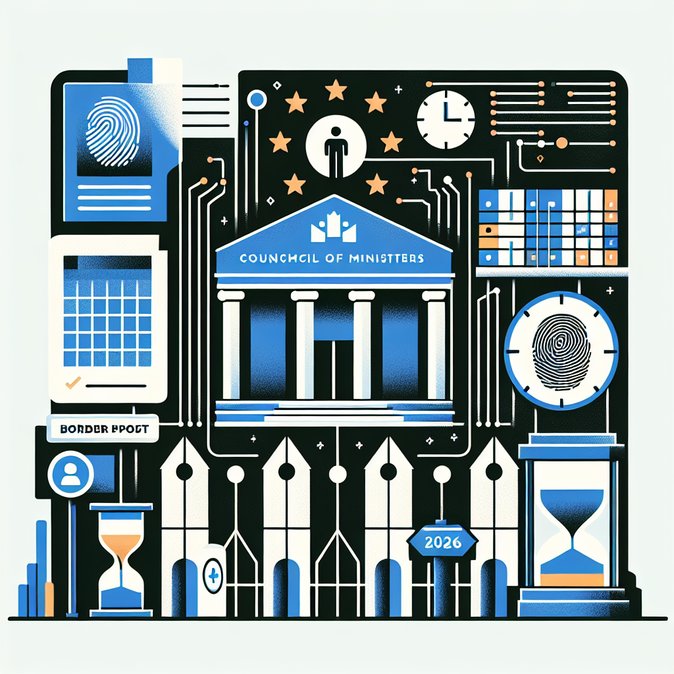
Meeting at the Élysée Palace on 10 November 2025, President Emmanuel Macron’s cabinet approved a catch-all bill transposing 75 EU directives and regulations—among them the technical rules that underpin the Schengen Entry/Exit System (EES) and large-scale information systems for migration control. The draft law, known as DDADUE 2025, explicitly amends the French Code de l’entrée et du séjour to allow biometric data captured at borders to be cross-referenced with residency-permit files and police databases.
Why it matters: until now, French police aux frontières could not automatically verify whether a third-country national had overstayed a short-stay visa once they obtained a long-stay permit. The new provisions let border guards consult residency and asylum-case information in real time, closing a loophole frequently exploited by serial overstayers.
![French Cabinet Green-Lights EU Law Package that Digitises Border and Residency Checks]()
The bill also grants the National Frequency Agency new powers to audit cybersecurity compliance of EES kiosks at airports, seaports and juxtaposed controls in the UK. Private concessionaires operating border infrastructure must certify that their systems can store biometric and travel data for up to three years, as required by EU law, or face fines of up to €2 million.
For corporate mobility teams the upshot is better data integrity but potentially tougher document checks. Employees entering France on short missions will need to be absolutely sure their previous entries and exits are correctly logged; any mismatch could trigger secondary screening. HR departments should encourage staff to keep boarding passes or e-tickets for at least six months as back-up evidence during the EES bedding-in phase.
Next steps: the bill now heads to the Senate, which is expected to focus on privacy safeguards. Adoption before the Christmas recess would give border agencies legal cover to scale EES usage from the current 10 percent of crossings to the EU-mandated 35 percent by mid-January 2026.
Why it matters: until now, French police aux frontières could not automatically verify whether a third-country national had overstayed a short-stay visa once they obtained a long-stay permit. The new provisions let border guards consult residency and asylum-case information in real time, closing a loophole frequently exploited by serial overstayers.

The bill also grants the National Frequency Agency new powers to audit cybersecurity compliance of EES kiosks at airports, seaports and juxtaposed controls in the UK. Private concessionaires operating border infrastructure must certify that their systems can store biometric and travel data for up to three years, as required by EU law, or face fines of up to €2 million.
For corporate mobility teams the upshot is better data integrity but potentially tougher document checks. Employees entering France on short missions will need to be absolutely sure their previous entries and exits are correctly logged; any mismatch could trigger secondary screening. HR departments should encourage staff to keep boarding passes or e-tickets for at least six months as back-up evidence during the EES bedding-in phase.
Next steps: the bill now heads to the Senate, which is expected to focus on privacy safeguards. Adoption before the Christmas recess would give border agencies legal cover to scale EES usage from the current 10 percent of crossings to the EU-mandated 35 percent by mid-January 2026.


